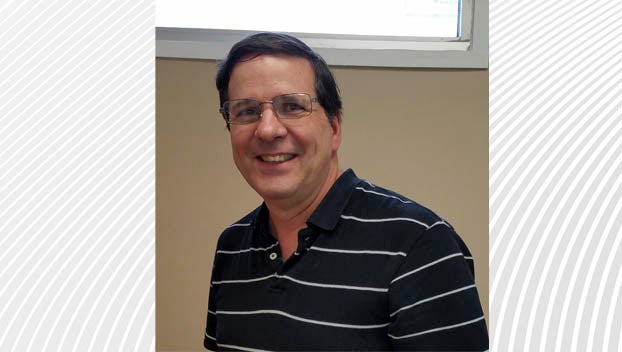
By Dr. Thomas Ruffolo (Vidant Health)
To say this past year of living with COVID has been unusual would be the understatement of all time. Our world has seen dramatic changes in how we live, work, worship, dine, shop and even how we obtain our medical care.
For several months last spring most elective medical procedures were put on an indefinite hold. Outpatient procedures that were not urgent were deferred. This included screening studies for colorectal cancer such as colonoscopy. As a result, many people deferred or elected not to proceed with traditional colon cancer screening protocols. We know for a fact that many people with serious medical conditions such as colon cancer were delayed in their diagnosis by the COVID crisis, often with adverse outcomes.
Fortunately we seem to have reached the proverbial “light at the end of the tunnel” in regards to COVID diagnosis, treatment and vaccine prevention. Thanks to Operation Warp Speed and our amazing medical scientists we can anticipate a sense of normalcy returning in the near future. Already 25% of the adult population in the U.S. has been vaccinated for COVID. From a medical perspective most clinics and hospitals are close to getting back to their usual operations. Visitor restrictions remain in place and continued COVID screenings and vigilance are still essential. Clinic and medical office visits remain down but things are ramping back up.
So as we emerge from our isolation “bubbles,” we need to revisit the neglected preventative care aspects of our health. If you are one of the individuals who had to put off your colonoscopy or other recommended health screening exam, don’t forget to get it scheduled. Appointments are still backed up but most clinics are catching up to the demand.
Here’s the take-home message: Don’t survive the COVID pandemic only to die from a preventable illness that wasn’t caught in time. Call and schedule your health screening appointments now. Don’t be an “indirect” COVID victim.
As you probably know, each March we focus on colon cancer awareness. I did want to mention some recent scientific data that has come out studying the role of diet on colon cancer risk. This has been the subject of discussion for many years, particularly when you compare colon cancer rates among varying populations with different dietary habits. According to a meta-analysis (extensive review) of 45 clinical studies, there is “convincing evidence” of an association of lower colorectal cancer (CRC) risk with a higher intake of dietary fiber, dietary calcium and yogurt. Conversely, there is a higher risk of CRC developing with increased intake of red meats and the routine consumption of alcohol. Dietary whole grains are encouraged and processed meats should be avoided. A healthy diet may be critical to your colon health.
It is felt that diet plays a bigger role in CRC develop then in any other cancer. As many as 38% of colorectal cancers are likely diet related. This percentage is even higher than the risk associated with genetics or family history. That is why many health care providers are focusing in on your eating habits. It has been determined that just eating three servings of whole grains daily can lead to a 17% reduction in colorectal cancer risk. That’s a pretty simple way to lessen your risk of developing colon cancer.
Unfortunately, in the U.S. our “western” diet — which is high in fats and red meats — is associated with a higher risk of CRC. We all need to review our own dietary habits and make adjustments, especially if you have a higher than average risk for developing colorectal cancer.
In addition, excess weight and physical inactivity are considered modest risk factors for development of CRC. With diet, a program of regular exercise and weight control can lessen your risk significantly.
Here’s another take-home message: A healthy diet is important in reducing your colorectal cancer risk.
I also want to emphasize that colorectal cancer remains the second leading cause of cancer death in the U.S. Over 50,000 American lives are lost annually to this disease. In my profession, I see and diagnose this disease several times a month. Invariably, most of the cases are in people who were never screened or who ignored physical warning signs. I implore you to not become a cancer statistic.
Do not ignore the warning signs of colorectal cancer, which include: a change in your stool pattern; unexplained weight loss; an unexplained anemia (low blood count); blood in the stool; and new or unexplained abdominal pain. Please seek professional attention if any of these apply to you.
There are numerous methods of colon cancer screening. Talk to your healthcare provider about the best options for you relative to your individual risk factors.
Dr. Thomas Ruffolo, of Vidant Gastroenterology – Washington, can be reached at 252-946-1573.
"care" - Google News
March 15, 2021 at 01:47PM
https://ift.tt/2PV5CPE
Health Beat: Stay on top of your preventative care - Washington Daily News - thewashingtondailynews.com
"care" - Google News
https://ift.tt/2N6arSB
Shoes Man Tutorial
Pos News Update
Meme Update
Korean Entertainment News
Japan News Update
Bagikan Berita Ini














0 Response to "Health Beat: Stay on top of your preventative care - Washington Daily News - thewashingtondailynews.com"
Post a Comment